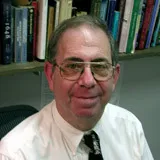Richard Mansbach '64

Mansbach is a professor of political science at Iowa State University. He has written or edited some 15 books in international relations theory and has chaired political science departments at Rutgers University and Iowa State University.
There was the political theorist who asked me about Machiavelli's economic philosophy, to which I unhappily answered that I didn't know he had any economic ideas. He beamed and said, "Precisely! Hah! I've had your fellow students call him a Marxist, an early liberal, and so forth." Another examiner could not seem to understand why anyone would write an honors thesis on a minute Spanish colony called Ifni. Unwilling to admit that the topic wasn't earth shattering, I merely responded: "To you, sir, Ifni may seem modest, but to a Spaniard, ah to a Spaniard..." (I hoped that he wouldn't notice that I hadn't answered his question.)
On three occasions, I have had the pleasure of changing roles and returning to Swarthmore as an honors examiner for international politics. Convinced, as are many alumni by my age, that students today have an easier lot than we did, I discovered that, in fact, little had changed. Angst-ridden students remain immensely talented and well prepared. On one of these occasions, I was paired with a second examiner who became known as the "bad cop" to my "good cop." Nevertheless, we discovered that our evaluations of students were identical.
During the two years I was on Swarthmore's faculty and the three visits I made as an examiner, I became aware that Swarthmore faculty are as angst-ridden as their students during exam week and that examiners, like the faculty, actually "root" for students, hoping that they will get high or highest honors, and are desperately unhappy if students fail to do well. Indeed, in examiners meetings to determine level of honors, "boos" have been heard when a student's overall ranking is lowered by a single examiner and held breath followed by cheers when a candidate received high marks on all exams.
Having taken and evaluated honors exams and having taught honors students, only one further honors-related experience awaits me - that of an angst-ridden parent, waiting to find out how well my daughter, Rachel '11, does in her honors exams, an experience that she, like her father, will carry with her the rest of her life.



